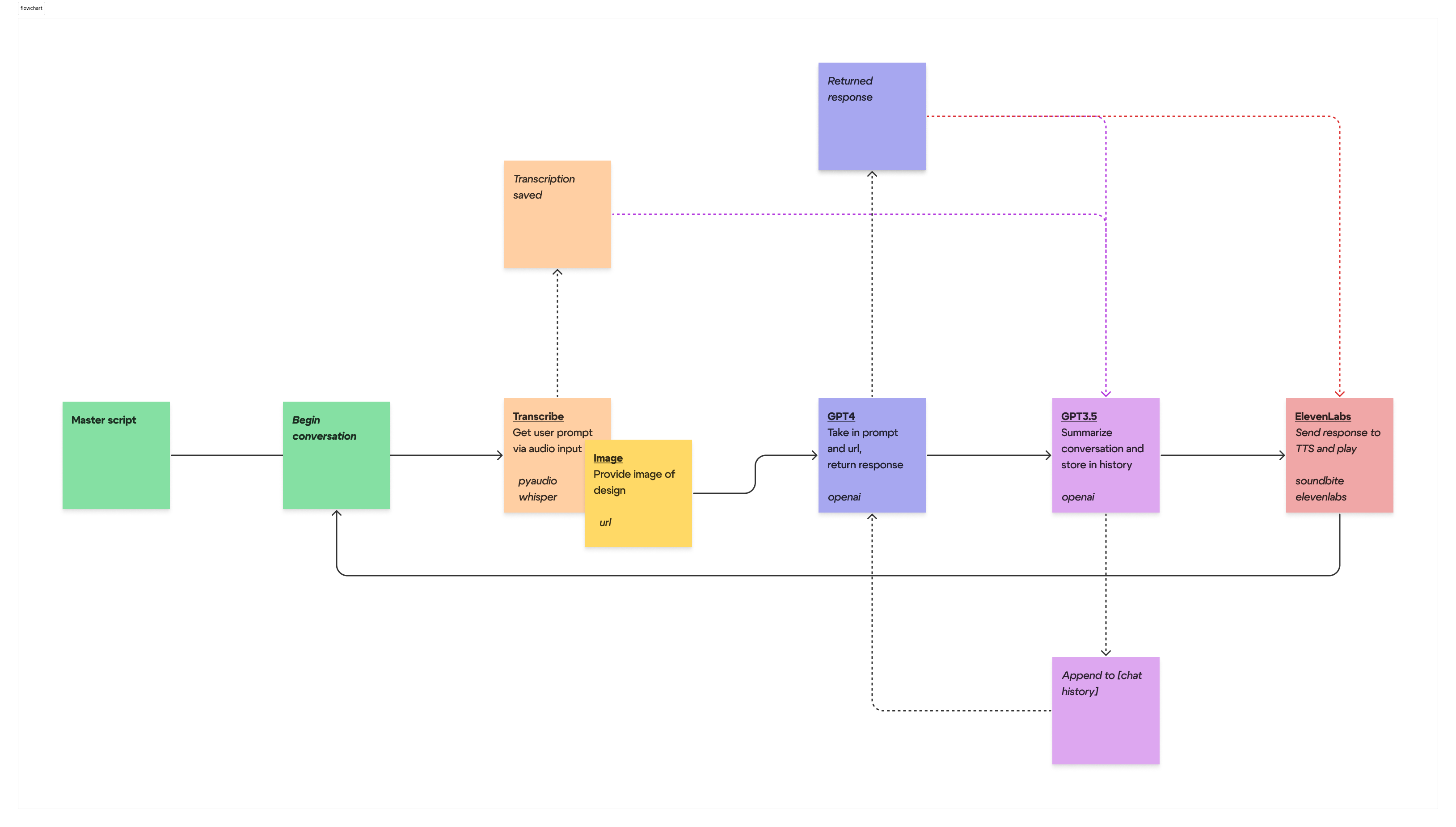
Building The World's First AI Design Director
Lesson learned: some things simply don't need to be built.
Conversation about AI in design has been daunting, with the threat of job automation looming above designers.
But, what if we collectively pushed the opposite way? What if, instead of AI making our designs, that we make designs for AI? And what if that AI serves to protect us from critique in a closed environment, rather than ridicule us using critique in front of a live audience?
That's where Director Delta comes to save the day. With UX knowledge retrieval and image recognition on designs, Director Delta provides succinct and intentional feedback in order to drive higher caliber design....or, that's what it was intended to do. In its infantile state, Delta 1.0 is a rude, arrogant, and critical bot that hones in on specific heuristic issues, all packaged into API calls from two tiny Python scripts.
Watch the video:
Why an "AI design director?"
The idea is rather a case study than anything that would actually have a direct application. I remember watching YouTube videos when generative AI was kicking off and seeing content creators deploy havoc with their own robots and assistants.
I was inspired to bring this content to a UX lens. But in due time, the intrusive thoughts began to take over, and my primary goal with this mad scientist experiment was finding which parameters for "tone" could single-handedly destroy a designer's self esteem.
The project still provides context to a neat question - how does the capabilities of AI help serve better decision-making within UX and design? All of this realistically can be done with a ChatGPT conversation using the correct grounding prompt, knowledge, and inputs.
Why is it called "Director Delta?"
I asked ChatGPT to create the name.
How does it all work?
Director Delta can provide feedback on your designs, giving its honest and brutal critique before providing recommendations for improvement. Director Delta also serves as a challenge generator, providing you with a business context and problem that can be solved through the use of digital design.
You can use Director Delta in two available formats:
- Available on ChatGPT as a public GPT model. Requires a Plus subscription or higher.
- Available for free on Github as a messy Python script. Python and OpenAI API knowledge required. Please read disclaimers in README.md.
Engaging with Director Delta in both ChatGPT and on the Python script allows any designer to continue the context in a given session based on previously-stored conversations. There is a lot of complexity behind the Python script to get it working correctly, but it does follow the simple feedback loop available in LLM chatbots:
- Designer provides a prompt (via microphone) and attaches an image of the design, which is sent to OpenAI.
- The gpt-4-vision model provides back a response based on the prompt query and the image, in the format defined as Director Delta's "directives" (ie. set of instructions provided to the model).
- To retain memory, a second call to OpenAI summarizes the conversation and appends it to an array, using gpt-3.5-turbo.

Do you see a future for Director Delta?
For Director Delta specifically, absolutely not. But the idea and use case for having an AI assistant as a copilot for designops, rather than a human as the copilot, sounds like a more refreshing approach to preserve as much of the craft of design as possible. Director Delta might not always have the right answer, and it's our human intuition that has the ability to assess and say "wait a second that's a stupid thing to critique or recommend." I could certainly see this type of prompting as a plugin for Figma or as a mediator for design discussions.
This isn't without saying that much of OpenAI's GPT models are limited to their respective training data and general use cases. I did not have the time or interest to train & fine-tune a model to accurately perform heuristic evaluations or accurately flag WCAG contrast ratios, because it requires an immense amount of collecting and tagging interfaces with the right parameters. Maybe I'll do that someday when the weather isn't so snowy.
I do hope though that this is inspiring enough for any designer, UXer or UIer to think of AI in a different light and start building solutions that will help grow the practice. So to my fellow designers - happy hunting! ■